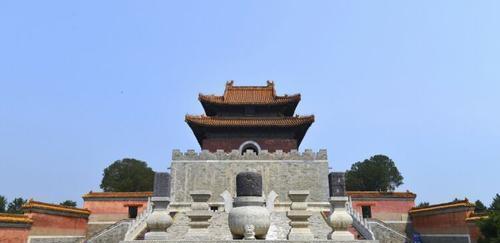Life and death
In the third year of the Qing Dynasty's reunification (1911 in the Western calendar), the Wuchang Uprising broke out, and eventually, the Qing Empire was in a state of crumbling. In the process of negotiating with the Qing Dynasty, the newly established Provisional Government of the Republic of China in the south made a promise to the Qing Dynasty imperial family, and the important part of it can be summarized in four words: life, survival, death and burial.

The so-called "birth and maintenance" refers to the fact that after the abdication of the Xuantong Emperor, the Government of the Republic of China will take out a sum of money from the treasury to give the Sunqing imperial family as living expenses, and the Xuantong Emperor and even the empress dowager and the concubines can still live a life of fine clothes and jade food. The so-called death burial, here (not literally) refers to the imperial tombs and temples of the Qing Dynasty, and the Republic of China government sent troops to protect them.
As for the conditions put forward by the Republic of China, Empress Longyu fully accepted them. To this end, after the fall of the Qing Dynasty, the imperial tomb was guarded by troops sent by the Republic of China government in the initial stage. During this period, the imperial tomb was guarded by soldiers of the Republic of China. At that time, it was the Beiyang government that ruled China, and the great president and the warlords of the Beiyang government had more or less certain origins with the Sunqing court, so the beiyang warlords' protection of the imperial tomb was competent.
Vacuum period
In fact, objectively speaking, the Beiyang government has always had great respect for the Sunqing Emperor - when Emperor Xuantong got married, the Beiyang government sent police to celebrate the wedding of Emperor Xuantong, and after the death of Empress Longyu, the Beiyang government did not have anything to criticize in terms of etiquette.
All this changed in the era when the Kuomintang regime in Nanjing was in power. The Kuomintang regime's attitude toward the Qing Dynasty was relatively indifferent, and coupled with the expulsion of the Xuantong Emperor from the Forbidden City, the Kuomintang did not think that a displaced deposed emperor had any political energy. Therefore, the Kuomintang side no longer sent troops to protect the imperial tomb.
At this time, the imperial family of the Qing Dynasty had to send money by themselves (according to the theory, there should be a Qing Dynasty Internal Affairs Office to pay this money, but at this time the Interior Ministry could not take this money) to hire tomb keepers. And because of the weakness of the strength of the tomb guards, the warlord Sun Dianying had an opportunity to take advantage of it, so the phenomenon of stealing the imperial tomb occurred. After that, China was in a state of chaos, and no one paid attention to the issue of the imperial tomb.
The era of New China
In 1949, the Founding of New China was founded.
Although New China never had any intersection with the former Qing Dynasty, let alone any agreement, New China had attributes that previous dynasties and dynasties did not have--it was far-sighted.
New China believes that whether it is the Manchu Qing Imperial Mausoleum or the Ming Dynasty Mausoleum, in the final analysis, they are all scenic spots and historical sites, all have the value of cultural relics protection, and they all belong to the property owned by the people collectively, rather than the private property of a certain family or group. Therefore, it is necessary for the relevant departments of New China to protect the property of these people.
To this end, the corresponding cultural relics protection institutions were established in the new China, and special cultural relics protection workers were arranged to protect the Manchu Qing and Ming Imperial Tombs.
Therefore, the imperial tombs of the Manchu Qing and Ming Dynasties have been properly protected since the founding of New China.